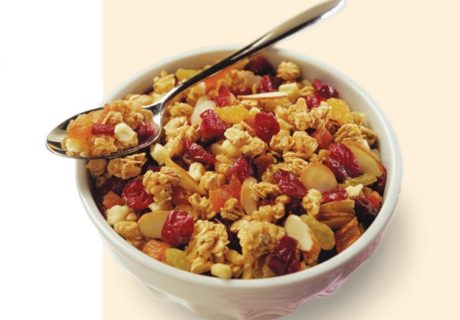Women’s health is a key area for the natural products industry. General wellbeing, hormonal health and pregnancy continue to draw women into health food stores and Sarah Callard explores what they really, really want.
Despite their undeniable talent for multi-tasking, women today are struggling to cope with the many demands made on them. Many jostle work, children, housework and relationships on a daily basis with very little time for themselves. This kind of stress takes its toll on their health and has been implicated in a range of female health problems from mental health to fertility.
A recent report into complementary medicines by Mintel, released at the end of 2009, found that almost a third of women have used them and women are more likely to do so than men. This further supports the increasing use of supplements and herbs by women.
General wellbeing
Supplements such as the Wellwoman range from Vitabiotics are becoming more popular. They offer women an easy, one-stop-shop for health, without them having to work out which is the right supplement for them.
Vitabiotics’ range provides variations on a theme including Wellwoman Cleanse and Wellwoman Active Prebiotic. These products help to target particular health concerns such as digestive health while at the same time providing good all-round support for maintaining wellbeing.
Sage Organic’s Healthy Woman supplement provides herbs as well as vitamins in one pack. It combines essential vitamins and minerals as well as spirulina for an extra boost of antioxidants. Herbs including burdock and dandelion help to cleanse the body, while organic flax provides essential fatty acids in the form of omega 3.
Says Julie Lamble, nutrionist for Lifeplan: “Supplements designed specifically for women’s health represent a large proportion of Lifeplan’s best-selling range of supplements.”
Lifeplan Women’s Multinutrient is a high strength vitamin and mineral supplement specifically formulated to meet the dietary needs of women.
“Women, especially, experience many different body-changing hormonal processes throughout their lives and when this combines with the stresses and strains of our modern, rush-around lives, which in turn places pressures on our eating and lifestyle habits, it’s no wonder that more and more resort to supplements to top-up their diet,” adds Lamble.
“Women, especially, experience many different body-changing hormonal processes throughout their lives and when this combines with the stresses and strains of our modern, rush-around lives, which in turn places pressures on our eating and lifestyle habits, it’s no wonder that more and more resort to supplements to top-up their diet.”
Solgar’s Female Multiple is one of its best-sellers. It combines calcium, amino acids and vitamins with zinc, selenium and chromium as well as range of other vitamins and minerals, to provide all-round support for women looking to maintain good health.
Herbs can also be very beneficial for maintaining good general health. Alex Kirchin at Viridian recommends a range of herbs which “can provide an abundance of valuable nutrients and important phytochemicals which can be missing in the typical western diet”. These include garlic, basil, coriander, turmeric, chives and green tea. “These all serve well in terms of immune support, circulatory function, inflammatory regulation and gastrointestinal support,” he explains.
Fertility and hormonal health
Fertility and pregnancy issues have become top of women’s agenda recently. Decreasing fertility rates are causing many women concern about whether they will be able to start a family and they are keen to improve their health in preparation for conception in order to improve their odds of getting pregnant.
This trend then continues during pregnancy with many women seeking to boost their health via supplementation in order to have a healthy pregnancy and optimise the health of their unborn child.
Manufacturers have responded to this increased demand with a wide range of specific supplements, such as Viridian’s Fertility for Women, which is designed to be taken at least 90 days ahead of planned conception.
Many women are aware of the importance of taking folic acid prior to conception and are looking to optimize their chance of becoming pregnant with the help of supplementation. The recent launch of Pregnacare His & Her Conception from Vitabiotics taps into this demand by providing essential vitamins and minerals for couples trying to conceive.
The dual pack contains Pregnacare Conception and Wellman Conception nutritional tablets providing folic acid, inositol to support ovarian function and vitamin B12 for reproductive health.
The Natural Health Practice, endorsed by women’s health expert, Marilyn Glenville, also provides supplements formulated for couples trying to conceive. Fertility Plus for Women and Fertility Plus for Men are designed to boost a couple’s chance of conception either naturally or by IVF.
Herbs can be extremely beneficial for women trying to conceive and even for those simply suffering from a hormonal imbalance. Says Thierry Damour from Kinetic: “From a naturopathic point of view, when a woman wants to conceive it’s wiser to start conception on a very healthy and ‘clean’ body to prevent the foetus inheriting toxic compounds from the mother’s side.”
“I personally would recommend that a woman should cleanse her body systematically with a good all-round detox, followed by a heavy metal detox as well as taking a good adult multi-vitamin and mineral supplement,” he adds.
Damour then suggests that once the detox has been completed women wishing to conceive should take a course of fertility herbs and supplements for a minimum of three months.
Agnus castus is probably the best known herb for hormonal health and is top of Marilyn Glenville’s list of herbs for women suffering from PMS and fertility problems. However, it works very slowly so women need to stick with it for at least three months in order to see the benefits.
Theirry Damour and Ayurvedic practitioner and director of Pukka Herbs, Sebastian Pole, both recommend that women wishing to start a family take Shatavari – an Ayurvedic herb known for its hormone balancing effect.
Pregnancy
Women’s nutritional needs change during pregnancy and more women are becoming aware of this change. Products such as Pregnazon from Health Aid – which is designed to be taken before, during and after pregnancy – are formulated specifically to cater for this extra demand.
Says Alex Kirchin: “Larger amounts of nutrients are required for growth and metabolism of maternal and foetal tissues and for storage in the foetus. Some of the additional need for nutrients is met by increased maternal food intake but regardless of dietary intake the enormous metabolic adjustments in nutrient utilisation support the use of additional supplemental nutrients.”
Viridian’s Pregnancy Complex is designed to support these extra requirements with its formula of calcium, magnesium and vitamin C. Kirchin adds that in addition to these extra nutritional requirements women are “becoming increasingly interested in purity, quality and avoiding unwanted ingredients such as colouring, additives, hydrogenated oils and talcum powder.”
Anemia caused by a lack of iron affects thousands of women during pregnancy. Traditional iron supplements may cause side effects, in particular constipation. But there are a couple of natural products that address this problem and provide natural iron without the side effects, such as Floradix from Salus and Spatone.
Spatone, a 100% natural liquid iron supplement, has seen a big increase in its market share according to global brand manager, Farina Jabbari. “Spatone has helped so many users top up their iron levels naturally whilst causing none or fewer of the unpleasant side effects usually experienced with conventional iron supplements,” explains Jabbari.
Essential fatty acids (EFAs) have also become more important during pregnancy – particularly from the third trimester – as well as during breast feeding.
Mumomega from Equazen contains a blend of essential fatty acids aimed at supporting the accumulation of particular fatty acids occurring during pregnancy.
EFAs are required as building blocks for the cells that make up the eye and brain during pregnancy to it is important that pregnant women have an adequate input from their diet. Low post-partum DHA status has also been linked with post-natal depression, another reason to boost levels with supplementation
Viridian’s Pregnancy Omega Oil has been specifically formulated for use during pregnancy and lactation. “It has been estimated that maternal DHA levels may take more than six months after delivery to reach full functional recovery,” says Kirchin. “Taking a food supplement of DHA as a capsule or within a nutritional oil is a good approach to help restore levels,” he adds.





